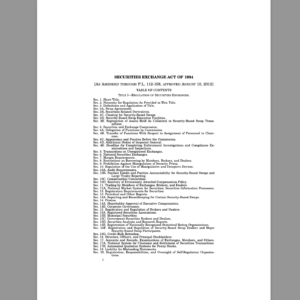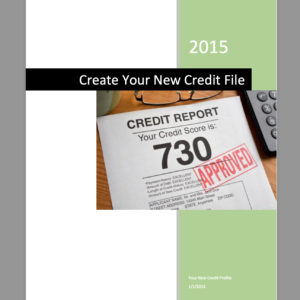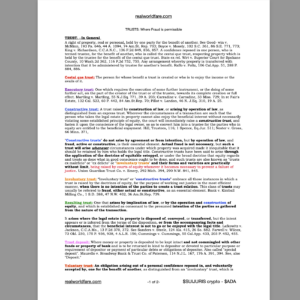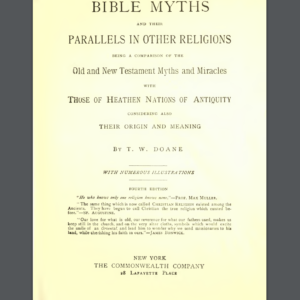Contracts, legally binding agreements between parties, are often formed through mutual consent, typically involving an offer and acceptance. Silence, known as tacit agreement, acquiescence, or tacit procuration, can also legally bind parties to contract terms. This concept becomes vital when challenging purported fraudulent loans like mortgages. Through the strategic use of commercial affidavits, one can utilize contract law principles such as the mailbox rule, the Uniform Commercial Code (UCC), and relevant statutes to enforce or modify contract terms. However, it is equally important to recognize that using Federal Reserve Notes (FRNs) for debt payment may be interpreted as tacit acceptance of the contract’s terms, potentially resulting in the abandonment of one’s assets and exemptions. This action may further expose the purported borrower to legal risks under federal law.
Commercial Affidavits: A Strategic Tool
Commercial affidavits are powerful instruments in administrative procedures, used to assert facts and propose new contract terms. According to legal principles, each point in the affidavit must be responded to point by point by the receiving party under penalty of perjury and signed by a natural person. Failure to respond constitutes tacit agreement, binding the terms proposed within the affidavit. This process is instrumental in challenging contracts formed under potentially fraudulent conditions.
Principles of Contract Law and Tacit Agreement
At the heart of contract law is the offer and acceptance principle. Silence, particularly when a duty to respond exists, can legally be interpreted as acceptance, forming a “tacit agreement.” For instance, when a purported borrower submits a commercial affidavit to a bank regarding a disputed loan, if the bank fails to respond, its silence may be legally interpreted as acquiescence. This tacit acceptance may then be enforced as legally binding.
The Mailbox Rule and UCC Provisions
Under the mailbox rule, an offer is considered accepted upon dispatch, not receipt. If a bank fails to respond to a commercial affidavit proposing modifications to a loan within a reasonable timeframe, this silence is acceptance.
The UCC provisions, including UCC 2-202, recognize that written communications like commercial affidavits can modify or add terms to an existing contract. If a bank remains silent after receiving such an affidavit, its silence equates to an agreement to those terms, creating a legally enforceable modification to the original agreement.
Additionally, under UCC 3-104, a “NOTE” is defined as an instrument evidencing the receipt of value by the purported creditor, thus confirming that the transaction between the creditor and purported borrower has already taken place.
HJR 192 of 1933 and the Discharge of Debts
House Joint Resolution 192 of 1933 (HJR 192) significantly impacts how debts are discharged. It declares that:
“Every obligation, heretofore or hereafter incurred, whether or not any such provision is contained therein or made with respect thereto, shall be discharged upon payment, dollar for dollar, in any coin or currency which at the time of payment is legal tender for public and private debts.”
Additionally, HJR 192 states:
“Every provision contained in or made with respect to any obligation which purports to give the obligee a right to require payment in gold or a particular kind of coin or currency is declared to be against public policy.”
This resolution prohibits the demand for a specific type of currency, affirming that a bill of exchange, bond, or negotiable instrument constitutes valid currency. Therefore, any such negotiable instrument may be used to settle debts, and upon presentation, these debts shall be discharged dollar for dollar, as outlined by HJR 192.
Status of Individuals and Legal Tender Under U.S. Law
A ‘person’ or ‘individual,’ as defined by 26 U.S. Code § 7701(a)(1), may also be defined as a ‘bank’ or a ‘financial institution’ according to U.C.C. 1-201, U.C.C. 4-105, 26 U.S. Code § 581, 12 U.S. Code § 221a, and 18 U.S. Code § 20. These definitions establish that a “citizen of the United States” can function as a financial institution or bank. As a franchise of the federal government, any currency issued by such individuals or entities (e.g., bills of exchange, bonds, or notes) is recognized as “currency of the United States.” Therefore, these instruments qualify as “legal tender,” reinforcing their validity for debt discharge.
Legal and Professional Responsibility in Commerce
Given the nature of commerce and financial obligations, there is a legal expectation that individuals engaged in commercial activities, including banks, are fully knowledgeable about these laws and principles. By using FRNs, even due to a lack of options, one is considered to be willfully engaging in commerce, and thus, they are expected to be aware of and adhere to these legal principles. The use of FRNs, when other lawful money is not demanded, could be viewed as tacitly accepting the bank’s terms and currency system.
Legal Maxims Supporting Affidavits in Commerce
- An Unrebutted Affidavit Stands as Truth in Commerce (12 Pet. 1:25; Heb. 6:13-15). “He who does not deny, admits.”
- An Unrebutted Affidavit Becomes the Judgment in Commerce (Heb. 6:16-17). “There is nothing left to resolve.”
- Truth is Expressed in the Form of an Affidavit (Lev. 5:4-5; Lev. 6:3-5; Lev. 19:11-13; Num. 30:2; Mat. 5:33; James 5:12).
- In Commerce, for Any Matter to be Resolved, it Must be Expressed (Heb. 4:16; Phil. 4:6; Eph. 6:19-21). Legal maxim: “To lie is to go against the mind.”
- He Who Leaves the Battlefield First Loses by Default (Book of Job; Mat. 10:22). Legal maxim: “He who does not repel a wrong when he can occasions it.”
- In Commerce, Truth is Sovereign (Exodus 20:16; Ps. 117:2; John 8:32; II Cor. 13:8). Truth is sovereign — and the Sovereign tells only the truth.
- Workman is Worthy of His Hire (Exodus 20:15; Lev. 19:13; Mat. 10:10; Luke 10:7; II Tim. 2:6). Legal maxim: “It is against equity for freemen not to have the free disposal of their own property.”
Conclusion
Tacit agreement, acquiescence, and tacit procuration are powerful legal principles that bind parties to contract terms when they fail to respond to commercial affidavits. These principles, supported by the UCC, HJR 192, and traditional contract law, provide a legal basis for modifying contracts and holding financial institutions accountable. By understanding and leveraging these laws, individuals can enforce new terms legally and protect their rights in the face of fraudulent contracts.












